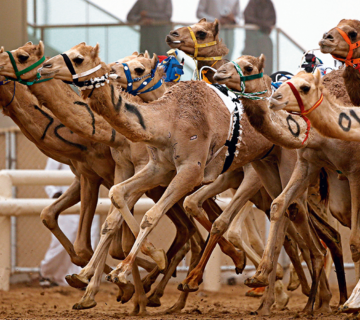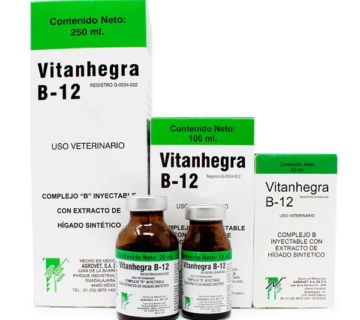Racehorses are elite athletes that require peak physical condition to perform at their best. However, their rigorous training and racing schedules make them susceptible to various ailments. Below, we delve into some of the most common health conditions affecting racehorses, including laminitis, colic, respiratory issues, and joint pain. Additionally, we provide actionable insights into prevention and management strategies, along with recommendations for racehorse supplements available at Abbey Veterinary Supply.
Laminitis
Laminitis is a debilitating condition affecting the hoof’s laminae—the soft tissues connecting the hoof wall to the coffin bone. This condition can lead to severe pain and lameness, and in extreme cases, it may necessitate euthanasia.
Causes:
- Excessive carbohydrate intake: Overfeeding grains can lead to an overload of sugars, disrupting gut microbiota and triggering inflammation.
- Injury or trauma: Prolonged weight-bearing on one limb due to an injury in another can induce laminitis.
- Endocrine disorders: Conditions like Equine Metabolic Syndrome (EMS) or Cushing’s Disease increase the risk of laminitis.
Symptoms:
- Reluctance to move or stand
- Heat in the hooves
- Increased digital pulse
- Shifting weight between legs
Prevention and Management:
- Dietary management: Reduce high-carbohydrate feed and maintain a balanced diet with supplements like our Equine Hoof Strengthener.
- Weight control: Ensure your horse maintains a healthy weight to reduce pressure on the hooves.
- Regular farrier care: Proper hoof trimming and shoeing are critical for preventing laminitis.
Colic
Colic refers to abdominal pain in horses, which can range from mild discomfort to life-threatening emergencies. It’s a leading cause of equine fatalities.
Causes:
- Dietary changes: Sudden shifts in diet can disrupt digestion.
- Dehydration: Lack of adequate water intake may lead to impaction colic.
- Parasites: Intestinal parasites can obstruct or irritate the gastrointestinal tract.
Symptoms:
- Rolling or thrashing
- Pawing at the ground
- Lack of appetite
- Elevated heart rate
- Reduced manure output
Prevention and Management:
- Gradual dietary changes: Transition to new feeds over 7-10 days.
- Hydration: Provide fresh, clean water at all times and consider adding electrolytes from our Equine Electrolyte Blend.
- Regular deworming: Use a parasite control program tailored to your horse.
- Immediate veterinary attention: Act promptly at the first sign of colic.
Respiratory Issues
Respiratory problems are common in racehorses due to the high demands placed on their lungs during intense exercise. Conditions like Exercise-Induced Pulmonary Hemorrhage (EIPH) and Recurrent Airway Obstruction (RAO) can hinder performance and overall health.
Causes:
- High-intensity exercise: Prolonged exertion can damage delicate lung tissues.
- Environmental irritants: Dust, mold, and pollen in stables or training areas can exacerbate issues.
- Infections: Viral and bacterial infections can compromise respiratory health.
Symptoms:
- Persistent coughing
- Nasal discharge
- Labored breathing
- Poor performance
Prevention and Management:
- Stable environment: Maintain good ventilation and minimize dust in bedding and feed.
- Proper conditioning: Gradual increases in workload allow the respiratory system to adapt.
- Supplements for respiratory health: Our Lung Function Support Supplement promotes healthy lung function and reduces inflammation.
- Veterinary care: Consult a vet for persistent symptoms or suspected infections.
Joint Pain
The high-impact nature of racing puts significant stress on a horse’s joints, often leading to arthritis or other degenerative joint diseases (DJD).
Causes:
- Overtraining: Excessive workload can accelerate joint wear and tear.
- Poor conformation: Structural imbalances may predispose certain joints to injury.
- Aging: Wear and tear increase with age.
Symptoms:
- Stiffness or lameness
- Swollen joints
- Reluctance to move
Prevention and Management:
- Controlled training: Ensure a balanced training regimen with adequate rest periods.
- Joint-friendly surfaces: Avoid excessively hard or uneven tracks.
- Nutritional support: Our Joint Repair Formula provides essential nutrients like glucosamine and chondroitin to maintain joint health.
- Regular veterinary check-ups: Monitor joint health and address issues early.
Understanding Common Racehorse Ailments

The Importance of Nutritional Supplements
In addition to targeted prevention and management strategies, nutritional supplements play a pivotal role in supporting racehorse health. At Abbey Veterinary Supply, we offer a wide range of products to address these common ailments:
- Hoof Care: Promote strong, healthy hooves with our Equine Hoof Strengthener.
- Digestive Support: Prevent colic with our Equine Digestive Aid.
- Respiratory Health: Enhance lung function with our Lung Function Support Supplement.
- Joint Protection: Maintain flexibility and reduce inflammation with our Joint Repair Formula.
Final Thoughts
Understanding and addressing common racehorse ailments is crucial for maintaining their health, performance, and longevity. Through proper care, balanced nutrition, and effective supplementation, you can significantly reduce the risks of these conditions. Explore our extensive range of racehorse supplements at Abbey Veterinary Supply to ensure your equine athlete thrives.




No comment